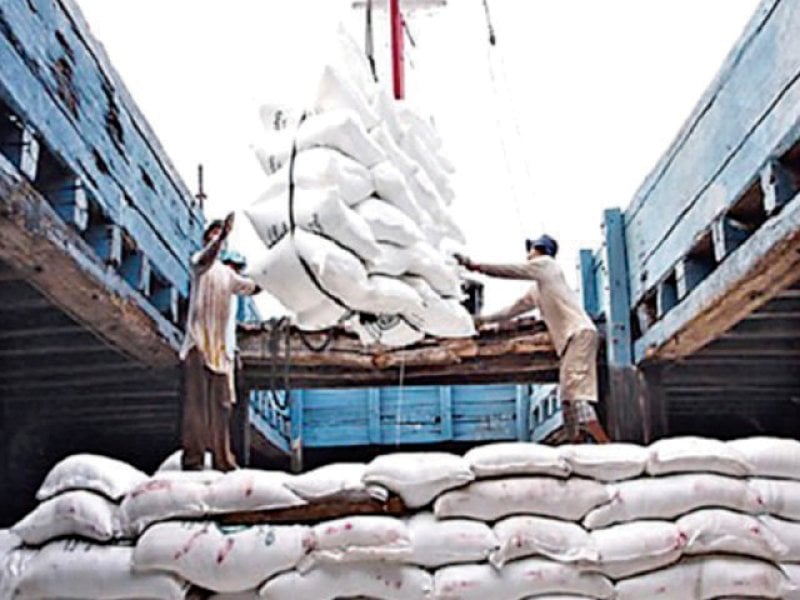
As the Ministry of Industries and Production fails to avert a delay in urea import, the government is mulling over a plan to give a lead role to the Ministry of National Food Security and Research for need assessment, timely purchase and smooth distribution of fertiliser.
The matter came up for discussion in a meeting of the Economic Coordination Committee (ECC) of the cabinet on February 13, sources say.
Officials present in the meeting recalled that the ECC in a sitting held on September 7, 2013 had directed the secretary of the Ministry of Planning, Development and Reform to assess the problems and hurdles being faced in the import of fertiliser and its distribution to end-users.
The secretary was also asked to suggest a way forward in consultation with the Ministry of Industries and Production and Trading Corporation of Pakistan (TCP). The main issues were identified after three comprehensive meetings.
The officials told the ECC that a delay in assessment and lack of proper inter-agency coordination and planning for timely import sparked calls like relaxing Public Procurement Regulatory Authority (PPRA) rules and caused difficulty in replenishing stocks.
Other issues were unscheduled curtailment of gas supply to urea plants causing problems in planning for import and delay in payments to the TCP by National Fertiliser Marketing Limited (NFML) for urea import.
The officials noted that the Ministry of Finance could not make finances available on time to enable the TCP to open letters of credit and purchase urea from the international market. They also suspected possible market manipulation because of differences between imported and domestic urea prices.
Distribution issues were there too that led to delay in lifting imported urea by NFML from port because of limited capacity of transport contractors and an inefficient dealers’ network for distribution and sale of the commodity. A lack of proper storage facility at Gwadar Port was also an issue.
Proposals
The officials suggested that the Ministry of National Food Security and Research should take the lead role of coordination, particularly need assessment and import planning, purchase urea on time and ensure its smooth distribution as was done by the Ministry of Food and Agriculture before its devolution under the 18th Amendment to the Constitution.
It was also proposed that an assessment of fertiliser requirement may be undertaken for five major crops of Kharif and Rabi seasons and a minimum buffer stock of 200,000 to 300,000 tons could be kept to meet the demand during peak season.
Other proposal was that there should be no curtailment of gas supply to urea plants in summer and maximum fertiliser production should be ensured to reduce import.
The Ministry of Industries and Production should ensure printing of maximum retail price on all fertiliser bags, either manufactured in the country or imported by the public or private sector.
The ECC observed that the recommendations did not achieve consensus among stakeholders due to reallocation of business after the 18th Amendment and a thorough review of relevant business allocated to the ministries and divisions was required before considering the issue further.
The ECC constituted a sub-committee under the Minister for Planning and Development for a review of jurisdictional placement of different federal government organisations after devolution focusing on synergies, improved governance and coordination.
The sub-committee will comprise ministers and secretaries from the renamed and recreated federal ministries and divisions after devolution.
Published in The Express Tribune, February 25th, 2014.
Like Business on Facebook, follow @TribuneBiz on Twitter to stay informed and join in the conversation.


1732519298-0/BeFunky-collage-(85)1732519298-0-165x106.webp)
1732611352-0/lamar-(5)1732611352-0-165x106.webp)
1732610018-0/BeFunky-collage-(91)1732610018-0-165x106.webp)












COMMENTS
Comments are moderated and generally will be posted if they are on-topic and not abusive.
For more information, please see our Comments FAQ